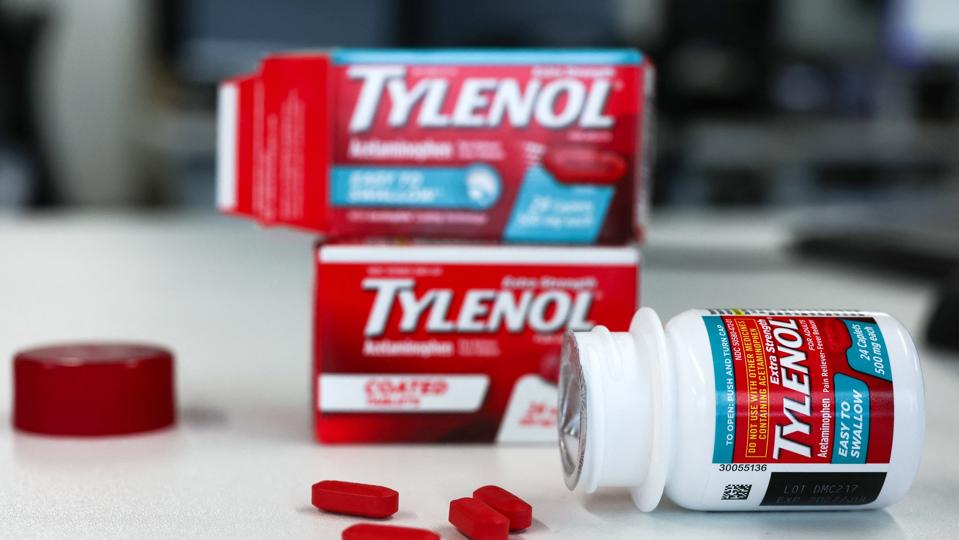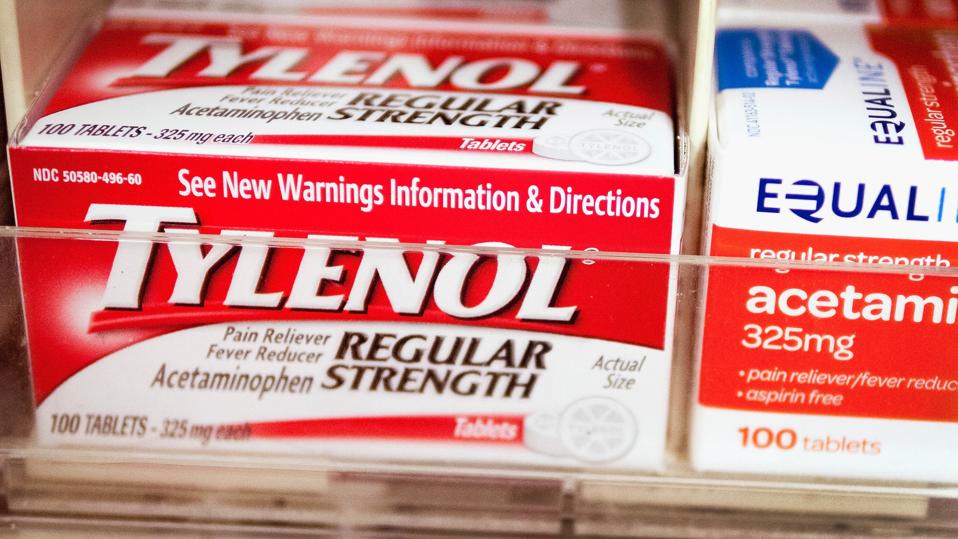Kimberly-Clark will acquire Kenvue in a deal valued at nearly $49 billion, both companies announced Monday, combining the maker of Huggies diapers and Kleenex with the owner of Tylenol, which has faced pressure since President Donald Trump claimed without conclusive evidence the drug is a potential cause of autism.

Key Takeaways
- Kimberly-Clark will pay $21.01 a share for Kenvue in a cash-and-stock deal valued at $48.7 billion, the consumer health brands said in a statement.
- The companies said they expect the deal to close in the second half of 2026, following approval from Kenvue and Kimberly-Clark shareholders, regulators and “satisfaction of other customary closing conditions.”
- Shares of Kenvue rose roughly 18% in premarket trading Monday to around $17, while Kimberly-Clark’s stock stumbled roughly 14.8% to nearly $102.
Kenvue Falls Below Sales Estimates In Q3 Report
Kenvue on Monday reported third-quarter sales that missed Wall Street’s projections: Revenues declined 3.5% to $3.76 billion, below estimates of $3.81 billion, according to FactSet. A drop in revenues was marked by declines in sales for Kenvue’s self-care and skin health brands, including Benadryl, Tylenol, Neutrogena and Aveeno, as self-care revenues dropped 3.8% to $1.56 billion and skin health fell 3.2% to $1.04 billion. Kenvue reported a profit of $0.28 per share, however, above estimates of $0.26.
Big Number
35%. That’s how much Kenvue’s stock has fallen since May 2023, when the company was spun out of Johnson & Johnson.
Key Background
Kenvue’s independence from Johnson & Johnson was short-lived and featured legal turmoil, including thousands of lawsuits that claim the company’s talcum baby powder caused cancer. Kenvue and Johnson & Johnson have agreed to pay hundreds of millions of dollars in damages related to the claims, and Johnson & Johnson has proposed paying billions more for ovarian cancer claims linked to the powder. A lawsuit was filed in the U.K. against Kenvue and Johnson & Johnson last month, though Kenvue—which now longer sells talc-based powder—has argued its talc powder was safe. Kenvue has in recent months faced pressure from activist investors Toms Capital Investment Management, Third Point, Starboard Value and D.E. Shaw to shift its marketing strategy around its beauty brands. Kenvue ousted CEO Thibaut Mongon in July as part of a strategic review.
Tangent
Trump in September urged Americans to “fight like hell” not to take Tylenol, claiming the drug’s main ingredient, acetaminophen, could cause autism in children when used by pregnant women. Kenvue has disputed the claim, arguing “sound science clearly shows that acetaminophen does not cause autism.” Texas Attorney General Ken Paxton announced last week the state had sued Kenvue and Johnson & Johnson, alleging the companies deceptively marketed Tylenol while knowing the drug posed an increased risk of autism. Kenvue told Forbes the drug is the “safest pain reliever option for pregnant women,” adding it would “vigorously defend ourselves against these claims.”
Look back on the week that was with hand-picked articles from Australia and around the world. Sign up to the Forbes Australia newsletter here or become a member here.
This story was originally published on forbes.com and all figures are in USD.


